TL;DR – Drinking water can assist in flushing out some medications by supporting kidney function and hydration, but it’s not universally effective for all medications. Always follow specific guidelines provided by healthcare professionals for each medication.
Over the past 30 years, more employers have been requiring their employees to submit to drug tests. In some industries, this drug testing is mandatory, but not every employer requires you to take a drug test. If you are in an industry in which you are required to submit to a drug test, it will be impossible for you to refuse these tests and retain your job. This may be the reason that you want to know if drinking water helps flush out substances from your system, so we will answer this question right now.
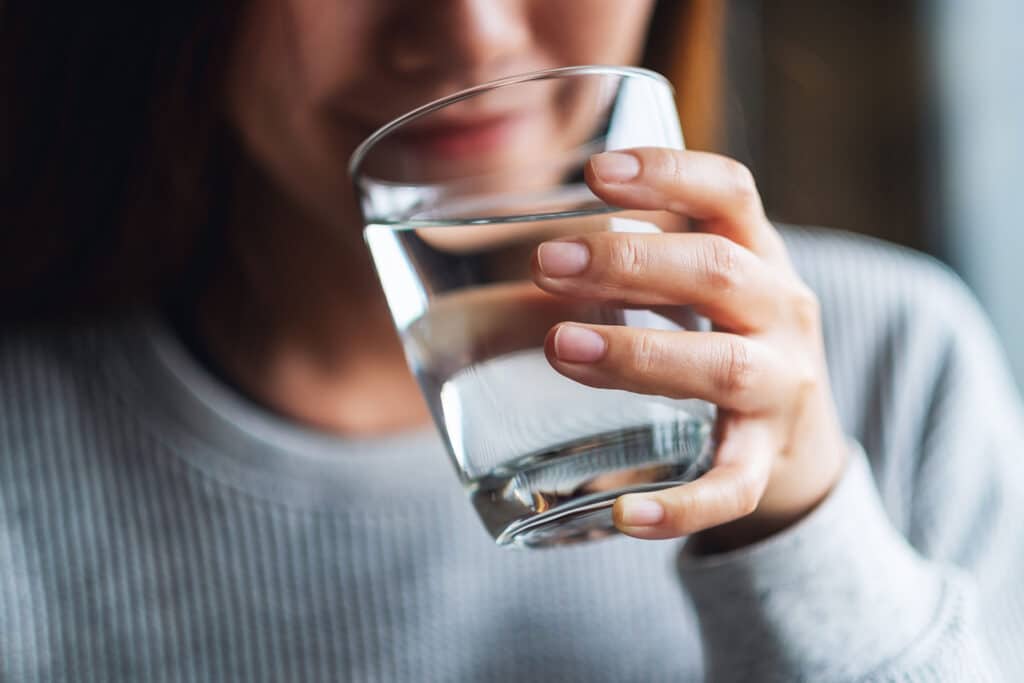
Table of Contents
- 1 Can Drinking Water Flush Out Substances?
- 2 The Kidneys and Their Job
- 3 Hyper-hydration and Renal Excretion
- 4 How Does Hyper-Hydration Impact the Reabsorption of Substances?
- 5 The Bottom Line
- 6 An Example
- 7 Is There Any Way to Mask the Use of Substances before a Drug Test?
- 8 Drinking Too Much Water
- 9 The Alternative
- 10 Common Reasons People Resist Entering a Drug Treatment Program
- 11 Co-Occurring Disorders
- 12 Why Do Mental Health Disorders and Substance Use Disorders Co-Occur at Such a High Rate?
- 13 Getting Help at Garden State Treatment Center
Can Drinking Water Flush Out Substances?
Gearing up for a pending drug test, contemplating the efficacy of guzzling down lots of water, how much water, enough water, or glasses of water to potentially dilute any substances lingering in your system? This practice, commonly termed “hyper-hydration,” is often hailed as a go-to method by some for detoxification (detox) purposes. However, there’s a split in opinions regarding its effectiveness. Let’s delve deeper into this discourse and decipher whether inundating your system with water truly aids in flushing out substances or if it’s merely a myth.
At the core of understanding the role of water in detoxification lies the intricate functionality of our kidneys. These vital organs serve as the body’s natural filtration system, responsible for sifting through toxins and waste products, ultimately expelling them through urine. So, does increasing water intake amplify this detoxification process?
One school of thought champions the notion that flooding the body with water can indeed expedite the elimination of substances. The rationale behind this belief rests on the premise that by consuming ample water, you effectively bolster urine production. As a result, the concentration of any illicit substances within the urine decreases, potentially rendering them undetectable during a drug test.
Conversely, skeptics argue that hyper-hydration merely dilutes the urine without significantly impacting the concentration of toxins within the body. In essence, while the volume of urine increases, the potency of any residual substances remains relatively unchanged. Moreover, excessively flushing out fluids can disrupt the delicate balance of electrolytes in the body, leading to potential health complications.
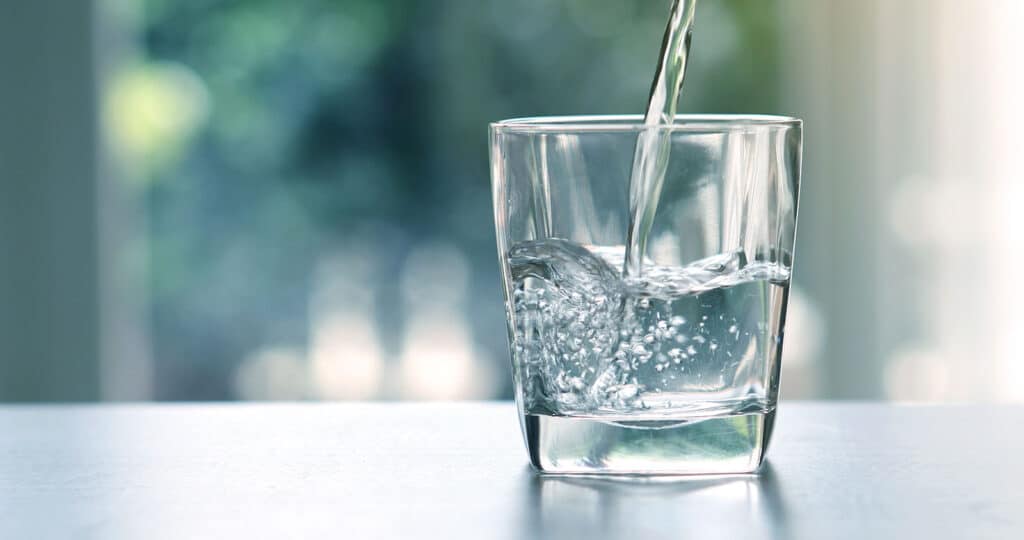
However, it’s crucial to acknowledge the importance of maintaining adequate water intake for overall well-being. Water plays a pivotal role in regulating body temperature, aiding digestion, and facilitating various biochemical processes. Striking a balance in water consumption ensures optimal bodily functions and supports overall health.
When it comes to detoxification and drug testing, relying solely on hyper-hydration may not be the panacea it’s often touted to be. While staying hydrated is undeniably beneficial, particularly for promoting kidney function, it’s unlikely to single-handedly purge your system of illicit substances in a short timeframe.
Instead, adopting a holistic approach to detoxification is advisable. This entails adopting healthy lifestyle practices such as regular exercise, consuming a balanced diet rich in fruits and vegetables, and minimizing drug use altogether. Additionally, consult with healthcare professionals for personalized guidance and support tailored to your specific circumstances.
In conclusion, while the idea of hyper-hydration as a detoxification method may hold some appeal, its efficacy remains debatable. Rather than placing undue reliance on excessive water intake as a quick-fix solution, prioritize sustainable lifestyle choices that promote overall health and well-being. Remember, the true essence of detoxification lies not in quick fixes but in nurturing your body through mindful habits and self-care practices.
References:
Sharma, P., Murthy, P., & Bharath, M. M. S. (2010). Chemistry, metabolism, and toxicology of cannabis: Clinical implications. Iranian Journal of Psychiatry, 5(4), 135–140.
Armstrong, L. E., & Johnson, E. C. (2019). Water Intake, Water Balance, and the Elusive Daily Water Requirement. Nutrients, 11(10), 2364. https://doi.org/10.3390/nu11102364
Popkin, B. M., D’Anci, K. E., & Rosenberg, I. H. (2010). Water, Hydration and Health. Nutrition Reviews, 68(8), 439–458. https://doi.org/10.1111/j.1753-4887.2010.00304.x
National Institute on Drug Abuse. (2020). Drug Testing. Retrieved from https://www.drugabuse.gov/drug-topics/drug-testing
The Kidneys and Their Job
One of the jobs of the kidneys is to remove toxins from the blood by way of renal excretion. The kidneys’ filtration system filters the plasma and sends it into the renal tubule. In this way, your kidneys filter approximately 20% of the plasma that comes to them. A molecule may be reabsorbed back into the blood after it has been filtered. This requires the molecule to cross membranes, and substances contain molecules that can easily do this. There is also secretion when transporters pump some of the molecules into the renal tubules.
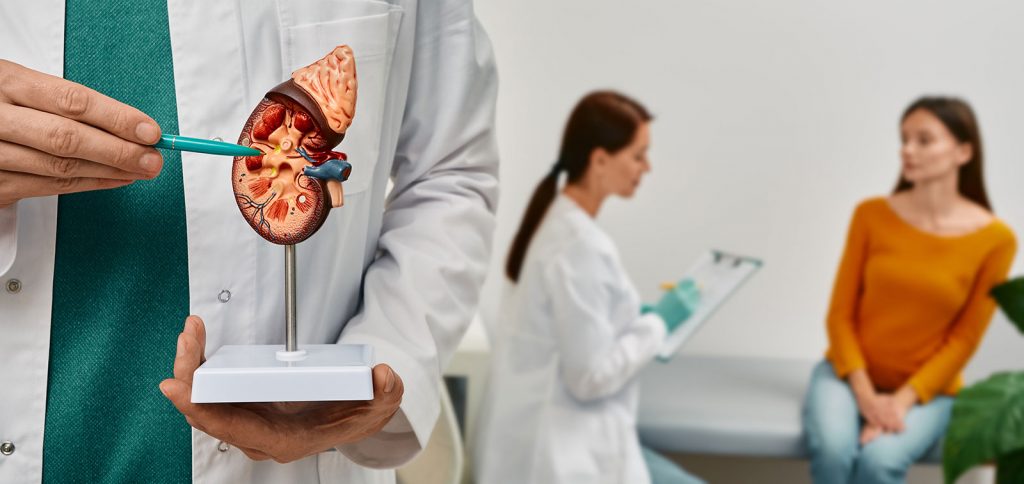
Hyper-hydration and Renal Excretion
Most of the water that reaches the kidneys is absorbed. Therefore, they do not create more urine by increasing filtration. If the kidneys want to create more urine, they do this by reabsorbing a smaller amount of water.
How Does Hyper-Hydration Impact the Reabsorption of Substances?
When hyper-hydration occurred, researchers learned that the kidneys reabsorbed a little less water. When the water is being reabsorbed into the blood, the urine contains more of the drug’s molecules. Then, the kidneys seek to balance the molecules by reabsorbing the substance into the blood.
When the body absorbs less water, fewer molecules are reabsorbed, and the urine flow speeds up. Because urine is moving faster, the substance has less time to move into the bloodstream. Therefore, if you were to drink more water, it would reduce the reabsorption of water. This will only increase the renal elimination of substances by a modest amount.
Scientists have not performed any research that demonstrates that drinking more water will affect the renal secretion process.
The Bottom Line
Drinking more water will increase renal excretion if the molecules are subject to being reabsorbed. Elimination through the renal process is just one way that substances can be removed from your system. If the other elimination pathways remove the substance faster, increasing renal elimination will not have much of an effect.
Drinking water cannot help eliminate a substance from your body.
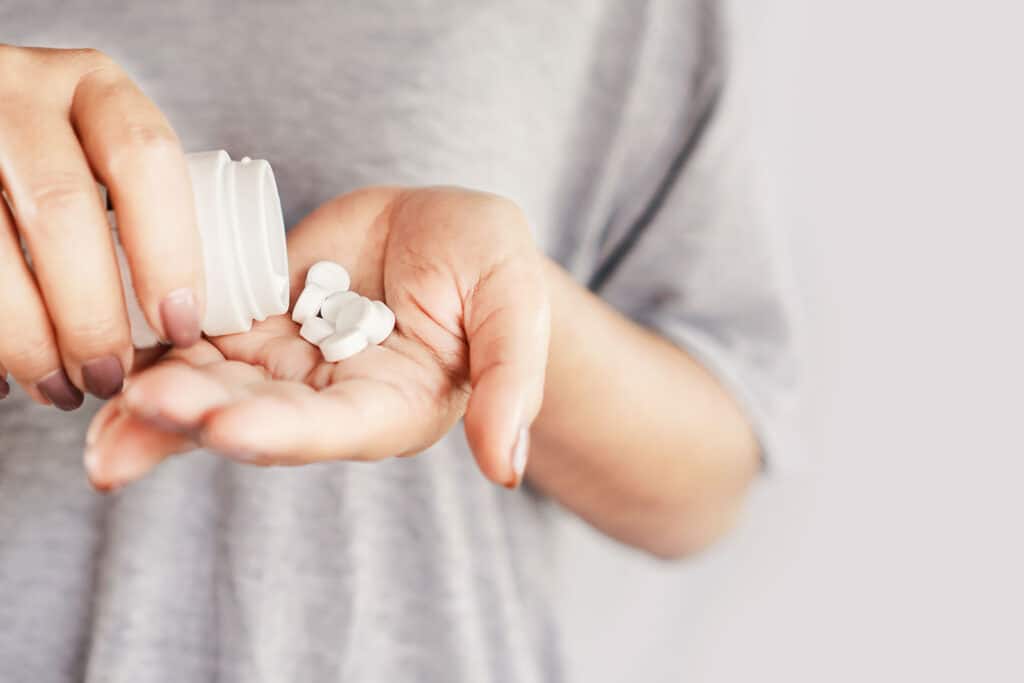
An Example
If you have ingested methamphetamine, for example, you will have to wait for your body to eliminate the presence of the substance naturally. In most cases, methamphetamine remains in the body for as long as five days, but it can be a shorter period or a longer period depending on your body type, age, or amount of substance that was taken.
If you are scheduled to take a blood test, be aware that meth can be detected in blood between one and three days. A saliva test can detect meth for up to four days, and a urine test can detect meth between three and five days. A test of your hair follicles can detect methamphetamine for as long as 90 days.
Factors that influence when methamphetamine can be detected in a drug test:
- Whether or not you have ingested other substances
- The mood you were in when you ingested the substance
- Your age, gender, overall health, and tolerance for the drug
- The dose and how you ingested the substance
Is There Any Way to Mask the Use of Substances before a Drug Test?
There is no way that you can mask the use of illicit substances before a drug test. All that you can do is ensure that you wait long enough for your body to metabolize the substances in their entirety.
Drinking Too Much Water
If you are not convinced that drinking more water cannot flush out substances, you may want to consider the reasons that drinking too much water isn’t good for you before you try it. Drinking too much water can disrupt the functioning of your brain. That is because the water enters your cells, and this results in swelling. If the brain cells begin to swell, it increases the pressure on your brain. When this occurs, you may experience headaches, drowsiness and confusion. As the pressure continues to build, it may lead to a low heart rate or high blood pressure.
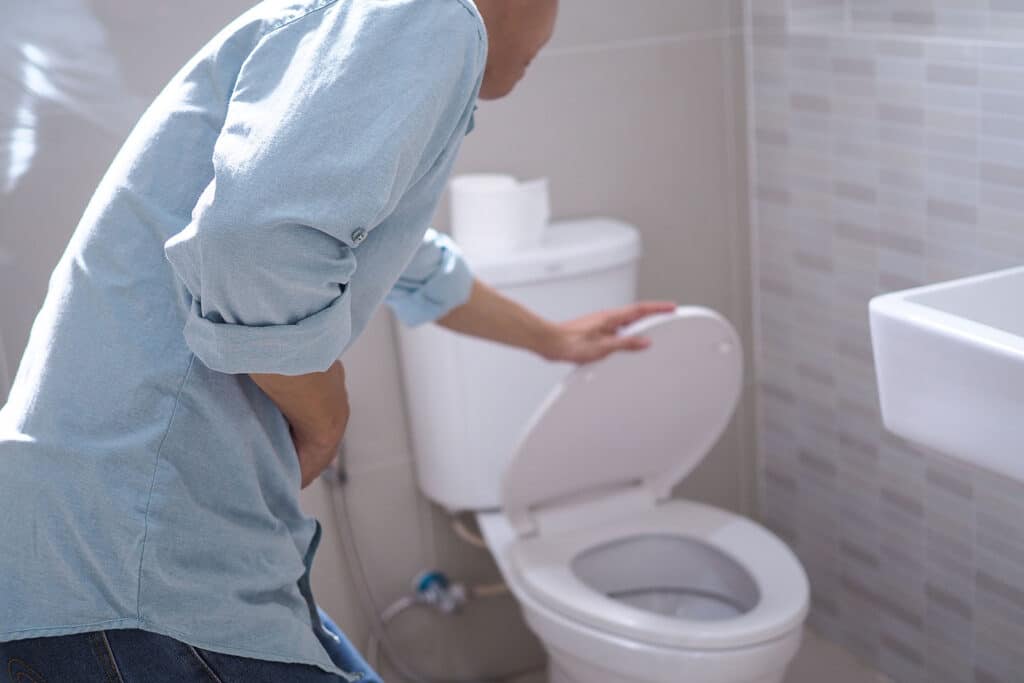
When you are drinking too much water, your electrolytes often become imbalanced. The electrolyte most affected at this time tends to be the sodium in your blood, so too much water causes a condition known as “hyponatremia.” Sodium has the job of keeping the fluids inside and outside of the cells balanced, and when there is less sodium because there is too much water, fluids make their way into the cells. This causes the cells to swell and then you would be at risk of going into a coma, having a seizure or even dying.
The Alternative
There is an alternative to cheating a drug test. The best way to ensure that a urine, saliva, blood or hair follicle test comes up negative is to refrain from using illicit substances. You may know that you have a problem with substances, but you may not know what to do about it. The Garden State Treatment Center has the answer for you.
Common Reasons People Resist Entering a Drug Treatment Program
One of the most common reasons that people resist drug treatment is because they are concerned about how it will look at work. Another common reason is that they are just not ready to stop using their substances of choice. If the first reason is the reason that you want to make sure that no one at your job knows you are experiencing a substance issue, it is understandable why you would want to cheat a drug test. However, it is not a good idea to continue to hide this issue from people at work, your friends and your family. The best option is to enter a treatment center so that you can get the help that you need.
Co-Occurring Disorders
Another reason that you need to seek treatment for the use of substances is because you may need treatment for a co-occurring mental health disorder. Mental health disorders and substance use disorders are known as “co-occurring” disorders when one person is suffering from both conditions at the same time. At Garden State Treatment Center, we can diagnose and treat a possible mental health disorder and treat your substance use disorder.
It is possible that you are experiencing both disorders. After being diagnosed with a substance use disorder, many people also receive a diagnosis of a mental health disorder. Also, after receiving a diagnosis of a mental health disorder, many people develop substance use disorders.
Why Do Mental Health Disorders and Substance Use Disorders Co-Occur at Such a High Rate?
Both mental health disorders and substance use disorders may be triggered by the same sources. For example, the research demonstrates that several genes contribute to the risk of developing both substance use disorders and mental health disorders. Also, mental health disorders and substance use disorders are associated with the same regions in the brain.
If the mental health disorder presents itself first, it can be the reason that people begin to use substances. This is known as “self-medicating,” and it occurs whether someone has mild, moderate or severe symptoms of a mental health disorder. Substance use can also be the reason that a mental health disorder develops. That is because the use of substances disrupts the same areas in the brain that mental health disorders also disrupt.
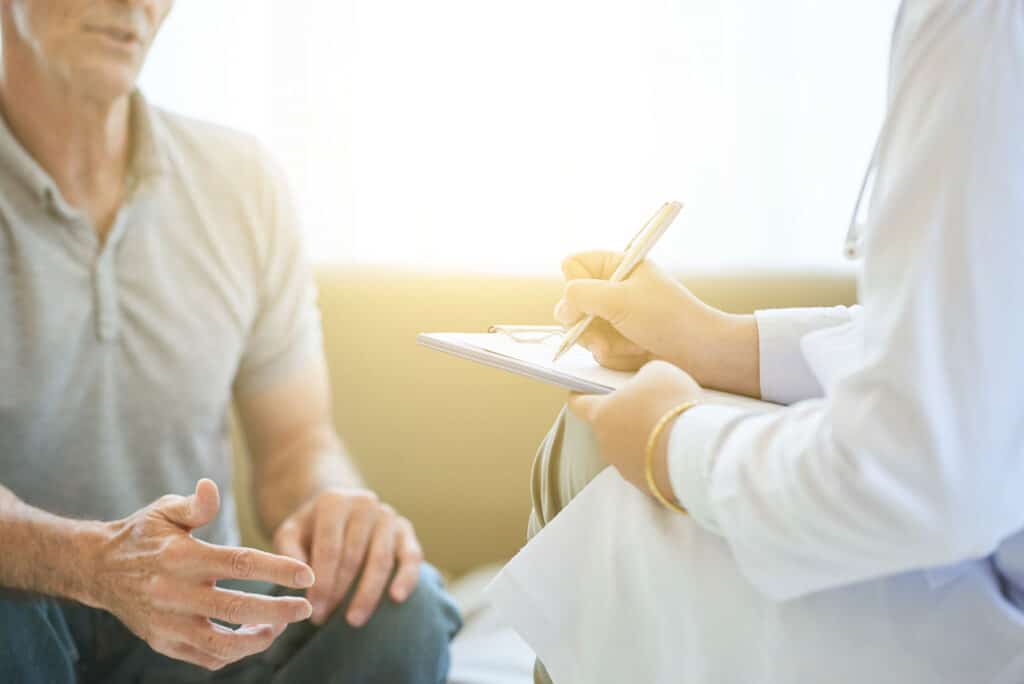
Getting Help at Garden State Treatment Center
The best way to make sure that you or your loved one pass a drug test is to never ingest substances in the first place, so if you are ready to enter into treatment for substance use or substance abuse and drug dependency or cravings, the Garden State Treatment Center, a healthcare provider, can help you. We can offer you partial care, an intensive outpatient program (IOP), and evening IOP. If needed, we will place you in our medication-assisted treatment (MAT) and/or dual diagnosis programs. We have a variety of therapy options that include individual addiction counseling, group therapy, couples therapy, and adventure therapy. Contact us today.
FAQ
Does drinking water help flush out medication?
What are some uncommon facts about “Does drinking water help flush out medication?”
Published on: 2022-12-30
Updated on: 2025-01-01



